 https://treasuryxl.com/wp-content/uploads/2024/10/Embat-BLOGS-featured-2.png
200
200
treasuryXL
https://treasuryxl.com/wp-content/uploads/2018/07/treasuryXL-logo-300x56.png
treasuryXL2026-02-09 07:00:592026-02-12 16:21:01How Companies Can Lose Tens of Millions Without Being “Cash Constrained”
https://treasuryxl.com/wp-content/uploads/2024/10/Embat-BLOGS-featured-2.png
200
200
treasuryXL
https://treasuryxl.com/wp-content/uploads/2018/07/treasuryXL-logo-300x56.png
treasuryXL2026-02-09 07:00:592026-02-12 16:21:01How Companies Can Lose Tens of Millions Without Being “Cash Constrained”For a corporate treasury, payments and banking services form the essential operational infrastructure. This function, often called Transaction Banking by financial institutions, encompasses the day-to-day movement, management, and security of corporate money. It is the practical execution of treasury strategy, ensuring suppliers are paid, customers can pay, cash is visible, and liquidity is optimized.
Core Components: What Treasury Manages
The corporate treasurer’s interaction with banks centers on three interconnected service pillars that support global business operations:
| Pillar | Treasury Focus & Key Services |
|---|---|
| Payments & Cash Management | The movement and visibility of cash. This includes domestic and cross-border payments (wires, ACH, SEPA), account structures (e.g., cash pooling), liquidity management solutions, and real-time cash positioning and forecasting. |
| Trade Finance | Mitigating risk and financing international trade. Services include Letters of Credit (LCs), bank guarantees, supply chain finance, and documentary collections that secure transactions between buyers and sellers across borders. |
| Trust & Securities Services | The safekeeping and administration of financial assets. This involves custody of investments, collateral management, and shareholder services—critical for companies with active investment portfolios or publicly traded stock. |
The Evolving Ecosystem: Banks, Fintechs, and Platforms
The provider landscape is no longer dominated solely by banks. Corporate treasurers now manage relationships across a diverse set of players.
-
Traditional Banks: Remain foundational, providing global networks, regulatory expertise, and balance sheet strength for core lending and risk products. Their offerings are becoming more digital, with a focus on API connectivity.
-
Fintech & Specialist Providers: Challenge incumbents by solving specific pain points. Examples include platforms for cross-border payments (often with better FX rates and transparency), B2B payment initiation, e-invoicing, and automated reconciliation.
-
Banking Platforms & Aggregators: Offer a layer above individual bank accounts. These Treasury Management Systems (TMS) or multi-bank portals aggregate information and transactions from multiple banking partners into a single view, simplifying control and reporting.
This shift means treasury must be an adept integrator, connecting best-in-class solutions from various providers into a coherent, controlled, and efficient operational stack.
Strategic Considerations for Implementation
Managing this ecosystem requires active strategy. Key questions for treasury include:
-
Bank Relationship Strategy: Are you consolidating to a few global partners for simplicity or maintaining a diverse panel for redundancy and competitive pricing? What is the right mix of global, regional, and local banks?
-
Technology & Integration: How do your banking providers connect to your ERP and TMS? Are they offering modern APIs for real-time data and automated payments, or relying on older file-based (e.g., host-to-host) connections?
-
Payment Modernization: Are you adopting new standards like ISO 20022 for richer, structured payment data? Are you evaluating instant payment schemes (like SEPA Instant in Europe) to improve supplier relationships and cash flow?
-
Security & Fraud Prevention: As payment initiation moves digitally, robust controls are mandatory. This includes payment approval workflows, fraud detection systems, and employee training against business email compromise (BEC) scams.
In essence, the payments and banking function has transformed from a utility into a strategic area. A modern treasurer must act as an architect, designing a resilient, efficient, and transparent financial operations infrastructure that supports the business’s global ambitions while rigorously managing cost, risk, and security.
Trusted partners to support you further
Click and Scroll! Here are more articles that you might like…
 https://treasuryxl.com/wp-content/uploads/2024/10/Embat-BLOGS-featured-2.png
200
200
treasuryXL
https://treasuryxl.com/wp-content/uploads/2018/07/treasuryXL-logo-300x56.png
treasuryXL2026-02-09 07:00:592026-02-12 16:21:01How Companies Can Lose Tens of Millions Without Being “Cash Constrained”
https://treasuryxl.com/wp-content/uploads/2024/10/Embat-BLOGS-featured-2.png
200
200
treasuryXL
https://treasuryxl.com/wp-content/uploads/2018/07/treasuryXL-logo-300x56.png
treasuryXL2026-02-09 07:00:592026-02-12 16:21:01How Companies Can Lose Tens of Millions Without Being “Cash Constrained” https://treasuryxl.com/wp-content/uploads/2025/05/Francois-Template_BLOGS-Expert-featured-7.png
200
200
treasuryXL
https://treasuryxl.com/wp-content/uploads/2018/07/treasuryXL-logo-300x56.png
treasuryXL2026-01-27 07:00:082026-01-26 15:02:23International Treasury Management and Corporate Finance – Advanced
https://treasuryxl.com/wp-content/uploads/2025/05/Francois-Template_BLOGS-Expert-featured-7.png
200
200
treasuryXL
https://treasuryxl.com/wp-content/uploads/2018/07/treasuryXL-logo-300x56.png
treasuryXL2026-01-27 07:00:082026-01-26 15:02:23International Treasury Management and Corporate Finance – Advanced https://treasuryxl.com/wp-content/uploads/2024/10/Embat-BLOGS-featured-2.png
200
200
treasuryXL
https://treasuryxl.com/wp-content/uploads/2018/07/treasuryXL-logo-300x56.png
treasuryXL2026-01-26 07:00:072026-01-26 08:43:37AI in fintech: Separating the show from the work
https://treasuryxl.com/wp-content/uploads/2024/10/Embat-BLOGS-featured-2.png
200
200
treasuryXL
https://treasuryxl.com/wp-content/uploads/2018/07/treasuryXL-logo-300x56.png
treasuryXL2026-01-26 07:00:072026-01-26 08:43:37AI in fintech: Separating the show from the work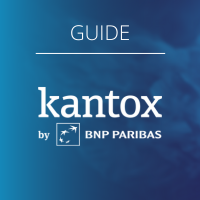 https://treasuryxl.com/wp-content/uploads/2026/01/KantoxBLOGS-featured-10-1.png
200
200
treasuryXL
https://treasuryxl.com/wp-content/uploads/2018/07/treasuryXL-logo-300x56.png
treasuryXL2026-01-22 08:13:532026-01-22 08:16:55Hedge Accounting Made Easy Guide
https://treasuryxl.com/wp-content/uploads/2026/01/KantoxBLOGS-featured-10-1.png
200
200
treasuryXL
https://treasuryxl.com/wp-content/uploads/2018/07/treasuryXL-logo-300x56.png
treasuryXL2026-01-22 08:13:532026-01-22 08:16:55Hedge Accounting Made Easy Guide https://treasuryxl.com/wp-content/uploads/2025/08/Nomentia-BLOGS-featured-3.png
200
200
treasuryXL
https://treasuryxl.com/wp-content/uploads/2018/07/treasuryXL-logo-300x56.png
treasuryXL2026-01-20 07:00:082026-02-19 09:11:06Future of Forecasting: Smart, connected & strategic?
https://treasuryxl.com/wp-content/uploads/2025/08/Nomentia-BLOGS-featured-3.png
200
200
treasuryXL
https://treasuryxl.com/wp-content/uploads/2018/07/treasuryXL-logo-300x56.png
treasuryXL2026-01-20 07:00:082026-02-19 09:11:06Future of Forecasting: Smart, connected & strategic? https://treasuryxl.com/wp-content/uploads/2024/10/Embat-BLOGS-featured-2.png
200
200
treasuryXL
https://treasuryxl.com/wp-content/uploads/2018/07/treasuryXL-logo-300x56.png
treasuryXL2026-01-12 07:00:432026-01-12 03:36:46Finance Automation Is Having Its Sourdough Starter Moment
https://treasuryxl.com/wp-content/uploads/2024/10/Embat-BLOGS-featured-2.png
200
200
treasuryXL
https://treasuryxl.com/wp-content/uploads/2018/07/treasuryXL-logo-300x56.png
treasuryXL2026-01-12 07:00:432026-01-12 03:36:46Finance Automation Is Having Its Sourdough Starter Moment https://treasuryxl.com/wp-content/uploads/2024/10/Carlo-_BLOGS-Expert-featured-2.png
200
200
treasuryXL
https://treasuryxl.com/wp-content/uploads/2018/07/treasuryXL-logo-300x56.png
treasuryXL2026-01-08 08:57:102026-01-08 08:57:37SWIFT entering the blockchain world
https://treasuryxl.com/wp-content/uploads/2024/10/Carlo-_BLOGS-Expert-featured-2.png
200
200
treasuryXL
https://treasuryxl.com/wp-content/uploads/2018/07/treasuryXL-logo-300x56.png
treasuryXL2026-01-08 08:57:102026-01-08 08:57:37SWIFT entering the blockchain world https://treasuryxl.com/wp-content/uploads/2025/12/Carlo-_BLOGS-Expert-featured-1.png
200
200
treasuryXL
https://treasuryxl.com/wp-content/uploads/2018/07/treasuryXL-logo-300x56.png
treasuryXL2026-01-06 07:00:082026-01-05 15:33:25Beyond the Numbers: The Human Side of Treasury
https://treasuryxl.com/wp-content/uploads/2025/12/Carlo-_BLOGS-Expert-featured-1.png
200
200
treasuryXL
https://treasuryxl.com/wp-content/uploads/2018/07/treasuryXL-logo-300x56.png
treasuryXL2026-01-06 07:00:082026-01-05 15:33:25Beyond the Numbers: The Human Side of Treasury https://treasuryxl.com/wp-content/uploads/2025/01/Nomentia-BLOGS-featured-1.png
200
200
treasuryXL
https://treasuryxl.com/wp-content/uploads/2018/07/treasuryXL-logo-300x56.png
treasuryXL2025-12-04 11:28:302025-12-04 11:29:18Is AI a risk in payments?
https://treasuryxl.com/wp-content/uploads/2025/01/Nomentia-BLOGS-featured-1.png
200
200
treasuryXL
https://treasuryxl.com/wp-content/uploads/2018/07/treasuryXL-logo-300x56.png
treasuryXL2025-12-04 11:28:302025-12-04 11:29:18Is AI a risk in payments? https://treasuryxl.com/wp-content/uploads/2024/10/Carlo-_BLOGS-Expert-featured-2.png
200
200
treasuryXL
https://treasuryxl.com/wp-content/uploads/2018/07/treasuryXL-logo-300x56.png
treasuryXL2025-12-03 07:00:462025-12-02 18:17:10European Commercial banks and the Digital Euro: Inaction not an option
https://treasuryxl.com/wp-content/uploads/2024/10/Carlo-_BLOGS-Expert-featured-2.png
200
200
treasuryXL
https://treasuryxl.com/wp-content/uploads/2018/07/treasuryXL-logo-300x56.png
treasuryXL2025-12-03 07:00:462025-12-02 18:17:10European Commercial banks and the Digital Euro: Inaction not an option https://treasuryxl.com/wp-content/uploads/2025/06/Konstantin-Template_BLOGS-Expert-featured-1.png
200
200
treasuryXL
https://treasuryxl.com/wp-content/uploads/2018/07/treasuryXL-logo-300x56.png
treasuryXL2025-11-26 07:00:052025-11-25 16:07:19ISO 20022: Benefits, Challenges and How To of Migration
https://treasuryxl.com/wp-content/uploads/2025/06/Konstantin-Template_BLOGS-Expert-featured-1.png
200
200
treasuryXL
https://treasuryxl.com/wp-content/uploads/2018/07/treasuryXL-logo-300x56.png
treasuryXL2025-11-26 07:00:052025-11-25 16:07:19ISO 20022: Benefits, Challenges and How To of Migration https://treasuryxl.com/wp-content/uploads/2025/10/Kurt-Expert-featured.png
200
200
treasuryXL
https://treasuryxl.com/wp-content/uploads/2018/07/treasuryXL-logo-300x56.png
treasuryXL2025-11-25 07:00:152025-11-24 15:35:04How to Create Lasting Enterprise Value
https://treasuryxl.com/wp-content/uploads/2025/10/Kurt-Expert-featured.png
200
200
treasuryXL
https://treasuryxl.com/wp-content/uploads/2018/07/treasuryXL-logo-300x56.png
treasuryXL2025-11-25 07:00:152025-11-24 15:35:04How to Create Lasting Enterprise Value https://treasuryxl.com/wp-content/uploads/2025/05/Francois-Template_BLOGS-Expert-featured-7.png
200
200
treasuryXL
https://treasuryxl.com/wp-content/uploads/2018/07/treasuryXL-logo-300x56.png
treasuryXL2025-11-24 08:30:272025-11-24 08:32:52Roundtable on Alternative Methods of Funding
https://treasuryxl.com/wp-content/uploads/2025/05/Francois-Template_BLOGS-Expert-featured-7.png
200
200
treasuryXL
https://treasuryxl.com/wp-content/uploads/2018/07/treasuryXL-logo-300x56.png
treasuryXL2025-11-24 08:30:272025-11-24 08:32:52Roundtable on Alternative Methods of Funding https://treasuryxl.com/wp-content/uploads/2025/11/Fintech-Connect.png
200
200
treasuryXL
https://treasuryxl.com/wp-content/uploads/2018/07/treasuryXL-logo-300x56.png
treasuryXL2025-11-21 10:00:032025-11-21 11:11:17FinTech Connect 2025: Final Call To Register For The UK’s Biggest Fintech Event As 10th Anniversary Edition Nears
https://treasuryxl.com/wp-content/uploads/2025/11/Fintech-Connect.png
200
200
treasuryXL
https://treasuryxl.com/wp-content/uploads/2018/07/treasuryXL-logo-300x56.png
treasuryXL2025-11-21 10:00:032025-11-21 11:11:17FinTech Connect 2025: Final Call To Register For The UK’s Biggest Fintech Event As 10th Anniversary Edition Nears https://treasuryxl.com/wp-content/uploads/2024/10/Embat-BLOGS-featured-2.png
200
200
treasuryXL
https://treasuryxl.com/wp-content/uploads/2018/07/treasuryXL-logo-300x56.png
treasuryXL2025-11-13 07:00:352025-11-11 11:24:42Why the Modern CFO Deserves Better
https://treasuryxl.com/wp-content/uploads/2024/10/Embat-BLOGS-featured-2.png
200
200
treasuryXL
https://treasuryxl.com/wp-content/uploads/2018/07/treasuryXL-logo-300x56.png
treasuryXL2025-11-13 07:00:352025-11-11 11:24:42Why the Modern CFO Deserves Better https://treasuryxl.com/wp-content/uploads/2025/01/Nomentia-BLOGS-featured-1.png
200
200
treasuryXL
https://treasuryxl.com/wp-content/uploads/2018/07/treasuryXL-logo-300x56.png
treasuryXL2025-11-06 07:00:162025-11-05 16:51:22How treasury teams master multi-bank connectivity
https://treasuryxl.com/wp-content/uploads/2025/01/Nomentia-BLOGS-featured-1.png
200
200
treasuryXL
https://treasuryxl.com/wp-content/uploads/2018/07/treasuryXL-logo-300x56.png
treasuryXL2025-11-06 07:00:162025-11-05 16:51:22How treasury teams master multi-bank connectivity https://treasuryxl.com/wp-content/uploads/2024/10/Embat-BLOGS-featured-2.png
200
200
treasuryXL
https://treasuryxl.com/wp-content/uploads/2018/07/treasuryXL-logo-300x56.png
treasuryXL2025-10-30 07:00:262025-10-29 13:58:45The Evolution of the CFO: From Spreadsheet Addict to Chief Value Officer
https://treasuryxl.com/wp-content/uploads/2024/10/Embat-BLOGS-featured-2.png
200
200
treasuryXL
https://treasuryxl.com/wp-content/uploads/2018/07/treasuryXL-logo-300x56.png
treasuryXL2025-10-30 07:00:262025-10-29 13:58:45The Evolution of the CFO: From Spreadsheet Addict to Chief Value Officer https://treasuryxl.com/wp-content/uploads/2024/10/Carlo-_BLOGS-Expert-featured-2.png
200
200
treasuryXL
https://treasuryxl.com/wp-content/uploads/2018/07/treasuryXL-logo-300x56.png
treasuryXL2025-10-29 07:00:302025-10-27 17:49:16GENIUS and CLARITY ACT: US Financial Institutions entering the digital space
https://treasuryxl.com/wp-content/uploads/2024/10/Carlo-_BLOGS-Expert-featured-2.png
200
200
treasuryXL
https://treasuryxl.com/wp-content/uploads/2018/07/treasuryXL-logo-300x56.png
treasuryXL2025-10-29 07:00:302025-10-27 17:49:16GENIUS and CLARITY ACT: US Financial Institutions entering the digital space https://treasuryxl.com/wp-content/uploads/2025/01/Nomentia-BLOGS-featured-1.png
200
200
treasuryXL
https://treasuryxl.com/wp-content/uploads/2018/07/treasuryXL-logo-300x56.png
treasuryXL2025-10-27 07:00:392025-11-05 16:41:05The key to cash flow visibility across multiple banks
https://treasuryxl.com/wp-content/uploads/2025/01/Nomentia-BLOGS-featured-1.png
200
200
treasuryXL
https://treasuryxl.com/wp-content/uploads/2018/07/treasuryXL-logo-300x56.png
treasuryXL2025-10-27 07:00:392025-11-05 16:41:05The key to cash flow visibility across multiple banks https://treasuryxl.com/wp-content/uploads/2025/10/Kurt-Expert-featured.png
200
200
treasuryXL
https://treasuryxl.com/wp-content/uploads/2018/07/treasuryXL-logo-300x56.png
treasuryXL2025-10-15 08:54:042025-11-12 15:40:00Artificial Intelligence, IQ & Due Diligence
https://treasuryxl.com/wp-content/uploads/2025/10/Kurt-Expert-featured.png
200
200
treasuryXL
https://treasuryxl.com/wp-content/uploads/2018/07/treasuryXL-logo-300x56.png
treasuryXL2025-10-15 08:54:042025-11-12 15:40:00Artificial Intelligence, IQ & Due Diligence https://treasuryxl.com/wp-content/uploads/2025/09/Conferenzia-World-featured.png
200
200
treasuryXL
https://treasuryxl.com/wp-content/uploads/2018/07/treasuryXL-logo-300x56.png
treasuryXL2025-10-09 07:00:572025-10-16 15:12:06Banking 4.0 and Banking Innovation Conference
https://treasuryxl.com/wp-content/uploads/2025/09/Conferenzia-World-featured.png
200
200
treasuryXL
https://treasuryxl.com/wp-content/uploads/2018/07/treasuryXL-logo-300x56.png
treasuryXL2025-10-09 07:00:572025-10-16 15:12:06Banking 4.0 and Banking Innovation Conference https://treasuryxl.com/wp-content/uploads/2024/04/UNIglobal_BLOGS-featured.png
200
200
treasuryXL
https://treasuryxl.com/wp-content/uploads/2018/07/treasuryXL-logo-300x56.png
treasuryXL2025-10-09 07:00:512025-10-08 08:45:085th Annual Digital Banking Summit
https://treasuryxl.com/wp-content/uploads/2024/04/UNIglobal_BLOGS-featured.png
200
200
treasuryXL
https://treasuryxl.com/wp-content/uploads/2018/07/treasuryXL-logo-300x56.png
treasuryXL2025-10-09 07:00:512025-10-08 08:45:085th Annual Digital Banking Summit https://treasuryxl.com/wp-content/uploads/2025/10/MEET-OUR-PARTNERS.png
200
200
treasuryXL
https://treasuryxl.com/wp-content/uploads/2018/07/treasuryXL-logo-300x56.png
treasuryXL2025-10-07 10:57:242025-10-07 14:55:19EuroFinance 2025: Key Connections to Make
https://treasuryxl.com/wp-content/uploads/2025/10/MEET-OUR-PARTNERS.png
200
200
treasuryXL
https://treasuryxl.com/wp-content/uploads/2018/07/treasuryXL-logo-300x56.png
treasuryXL2025-10-07 10:57:242025-10-07 14:55:19EuroFinance 2025: Key Connections to Make https://treasuryxl.com/wp-content/uploads/2025/10/Embat-BLOGS-featured-8.png
200
200
treasuryXL
https://treasuryxl.com/wp-content/uploads/2018/07/treasuryXL-logo-300x56.png
treasuryXL2025-10-07 07:00:282025-10-09 08:42:44Smart AI, Smarter Expansion in Finance – by Embat & Payhawk
https://treasuryxl.com/wp-content/uploads/2025/10/Embat-BLOGS-featured-8.png
200
200
treasuryXL
https://treasuryxl.com/wp-content/uploads/2018/07/treasuryXL-logo-300x56.png
treasuryXL2025-10-07 07:00:282025-10-09 08:42:44Smart AI, Smarter Expansion in Finance – by Embat & Payhawk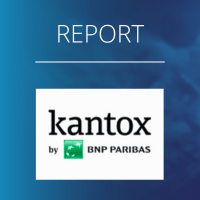 https://treasuryxl.com/wp-content/uploads/2025/02/KantoxBLOGS-featured-3.png
200
200
treasuryXL
https://treasuryxl.com/wp-content/uploads/2018/07/treasuryXL-logo-300x56.png
treasuryXL2025-10-01 07:00:582025-09-30 21:15:01Guide to Protecting the Budget FX Rate
https://treasuryxl.com/wp-content/uploads/2025/02/KantoxBLOGS-featured-3.png
200
200
treasuryXL
https://treasuryxl.com/wp-content/uploads/2018/07/treasuryXL-logo-300x56.png
treasuryXL2025-10-01 07:00:582025-09-30 21:15:01Guide to Protecting the Budget FX Rate https://treasuryxl.com/wp-content/uploads/2025/09/Nomentia-BLOGS-featured-5.png
200
200
treasuryXL
https://treasuryxl.com/wp-content/uploads/2018/07/treasuryXL-logo-300x56.png
treasuryXL2025-09-29 07:00:332025-09-26 15:08:48Nomentia and Mitigram Form Nordic Partnership to Bridge Treasury and Trade Finance
https://treasuryxl.com/wp-content/uploads/2025/09/Nomentia-BLOGS-featured-5.png
200
200
treasuryXL
https://treasuryxl.com/wp-content/uploads/2018/07/treasuryXL-logo-300x56.png
treasuryXL2025-09-29 07:00:332025-09-26 15:08:48Nomentia and Mitigram Form Nordic Partnership to Bridge Treasury and Trade Finance https://treasuryxl.com/wp-content/uploads/2025/01/Nomentia-BLOGS-featured-1.png
200
200
treasuryXL
https://treasuryxl.com/wp-content/uploads/2018/07/treasuryXL-logo-300x56.png
treasuryXL2025-09-17 07:55:082025-09-17 07:55:08How to turn your controlling plan into a reliable cash flow forecast
https://treasuryxl.com/wp-content/uploads/2025/01/Nomentia-BLOGS-featured-1.png
200
200
treasuryXL
https://treasuryxl.com/wp-content/uploads/2018/07/treasuryXL-logo-300x56.png
treasuryXL2025-09-17 07:55:082025-09-17 07:55:08How to turn your controlling plan into a reliable cash flow forecast https://treasuryxl.com/wp-content/uploads/2024/05/NEWS-featured_TD.png
200
200
treasuryXL
https://treasuryxl.com/wp-content/uploads/2018/07/treasuryXL-logo-300x56.png
treasuryXL2025-09-11 07:00:072025-09-11 09:17:10Treasury Delta Transacts Innovative Corporate Cash Management RFPs
https://treasuryxl.com/wp-content/uploads/2024/05/NEWS-featured_TD.png
200
200
treasuryXL
https://treasuryxl.com/wp-content/uploads/2018/07/treasuryXL-logo-300x56.png
treasuryXL2025-09-11 07:00:072025-09-11 09:17:10Treasury Delta Transacts Innovative Corporate Cash Management RFPs https://treasuryxl.com/wp-content/uploads/2024/10/Embat-BLOGS-featured-2.png
200
200
treasuryXL
https://treasuryxl.com/wp-content/uploads/2018/07/treasuryXL-logo-300x56.png
treasuryXL2025-09-09 08:06:422025-09-09 08:06:42Grundsätze für ein effizientes Schuldenmanagement von Unternehmen und dessen Auswirkungen auf die Finanzstrategie
https://treasuryxl.com/wp-content/uploads/2024/10/Embat-BLOGS-featured-2.png
200
200
treasuryXL
https://treasuryxl.com/wp-content/uploads/2018/07/treasuryXL-logo-300x56.png
treasuryXL2025-09-09 08:06:422025-09-09 08:06:42Grundsätze für ein effizientes Schuldenmanagement von Unternehmen und dessen Auswirkungen auf die Finanzstrategie https://treasuryxl.com/wp-content/uploads/2025/09/Harry_BLOGS-Expert-featured-3.png
200
200
treasuryXL
https://treasuryxl.com/wp-content/uploads/2018/07/treasuryXL-logo-300x56.png
treasuryXL2025-09-03 07:00:572025-09-25 09:23:15TARFs: Currency Roulette or Tactical Advantage?
https://treasuryxl.com/wp-content/uploads/2025/09/Harry_BLOGS-Expert-featured-3.png
200
200
treasuryXL
https://treasuryxl.com/wp-content/uploads/2018/07/treasuryXL-logo-300x56.png
treasuryXL2025-09-03 07:00:572025-09-25 09:23:15TARFs: Currency Roulette or Tactical Advantage? https://treasuryxl.com/wp-content/uploads/2025/09/Nomentia-BLOGS-featured-4.png
200
200
treasuryXL
https://treasuryxl.com/wp-content/uploads/2018/07/treasuryXL-logo-300x56.png
treasuryXL2025-09-01 08:45:572025-09-01 08:47:32Millions of Payments, One Solution – OTTO Payments Chooses Nomentia
https://treasuryxl.com/wp-content/uploads/2025/09/Nomentia-BLOGS-featured-4.png
200
200
treasuryXL
https://treasuryxl.com/wp-content/uploads/2018/07/treasuryXL-logo-300x56.png
treasuryXL2025-09-01 08:45:572025-09-01 08:47:32Millions of Payments, One Solution – OTTO Payments Chooses Nomentia https://treasuryxl.com/wp-content/uploads/2024/10/Embat-BLOGS-featured-2.png
200
200
treasuryXL
https://treasuryxl.com/wp-content/uploads/2018/07/treasuryXL-logo-300x56.png
treasuryXL2025-08-27 07:00:042025-08-26 17:47:58KI im Treasury erfolgreich einsetzen: So hebt Embat Effizienz-Potenziale!
https://treasuryxl.com/wp-content/uploads/2024/10/Embat-BLOGS-featured-2.png
200
200
treasuryXL
https://treasuryxl.com/wp-content/uploads/2018/07/treasuryXL-logo-300x56.png
treasuryXL2025-08-27 07:00:042025-08-26 17:47:58KI im Treasury erfolgreich einsetzen: So hebt Embat Effizienz-Potenziale! https://treasuryxl.com/wp-content/uploads/2025/01/Nomentia-BLOGS-featured-1.png
200
200
treasuryXL
https://treasuryxl.com/wp-content/uploads/2018/07/treasuryXL-logo-300x56.png
treasuryXL2025-08-18 07:00:552025-08-15 13:42:35How to build a business case for a payment hub?
https://treasuryxl.com/wp-content/uploads/2025/01/Nomentia-BLOGS-featured-1.png
200
200
treasuryXL
https://treasuryxl.com/wp-content/uploads/2018/07/treasuryXL-logo-300x56.png
treasuryXL2025-08-18 07:00:552025-08-15 13:42:35How to build a business case for a payment hub?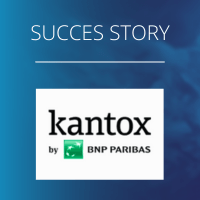 https://treasuryxl.com/wp-content/uploads/2025/06/KantoxBLOGS-featured-9.png
200
200
treasuryXL
https://treasuryxl.com/wp-content/uploads/2018/07/treasuryXL-logo-300x56.png
treasuryXL2025-08-14 08:43:552025-08-14 14:07:04How Clickio got their currency exposure under control with Kantox
https://treasuryxl.com/wp-content/uploads/2025/06/KantoxBLOGS-featured-9.png
200
200
treasuryXL
https://treasuryxl.com/wp-content/uploads/2018/07/treasuryXL-logo-300x56.png
treasuryXL2025-08-14 08:43:552025-08-14 14:07:04How Clickio got their currency exposure under control with Kantox https://treasuryxl.com/wp-content/uploads/2024/10/Embat-BLOGS-featured-2.png
200
200
treasuryXL
https://treasuryxl.com/wp-content/uploads/2018/07/treasuryXL-logo-300x56.png
treasuryXL2025-08-12 07:00:232025-08-26 17:43:49If you’re not forecasting your cash flow – you’re just hoping. Cashflow forecasting für CFOs
https://treasuryxl.com/wp-content/uploads/2024/10/Embat-BLOGS-featured-2.png
200
200
treasuryXL
https://treasuryxl.com/wp-content/uploads/2018/07/treasuryXL-logo-300x56.png
treasuryXL2025-08-12 07:00:232025-08-26 17:43:49If you’re not forecasting your cash flow – you’re just hoping. Cashflow forecasting für CFOs https://treasuryxl.com/wp-content/uploads/2025/08/Nomentia-BLOGS-featured-3.png
200
200
treasuryXL
https://treasuryxl.com/wp-content/uploads/2018/07/treasuryXL-logo-300x56.png
treasuryXL2025-08-07 08:13:452025-08-07 08:14:33Real-time treasury: Beyond bank connections & controls
https://treasuryxl.com/wp-content/uploads/2025/08/Nomentia-BLOGS-featured-3.png
200
200
treasuryXL
https://treasuryxl.com/wp-content/uploads/2018/07/treasuryXL-logo-300x56.png
treasuryXL2025-08-07 08:13:452025-08-07 08:14:33Real-time treasury: Beyond bank connections & controls https://treasuryxl.com/wp-content/uploads/2024/10/Carlo-_BLOGS-Expert-featured-2.png
200
200
treasuryXL
https://treasuryxl.com/wp-content/uploads/2018/07/treasuryXL-logo-300x56.png
treasuryXL2025-08-05 07:00:332025-08-04 16:57:34BoE Digital Pound project reversal: innovative payment solutions at commercial banks
https://treasuryxl.com/wp-content/uploads/2024/10/Carlo-_BLOGS-Expert-featured-2.png
200
200
treasuryXL
https://treasuryxl.com/wp-content/uploads/2018/07/treasuryXL-logo-300x56.png
treasuryXL2025-08-05 07:00:332025-08-04 16:57:34BoE Digital Pound project reversal: innovative payment solutions at commercial banks https://treasuryxl.com/wp-content/uploads/2025/04/Francois-Template_BLOGS-Expert-featured-6.png
200
200
treasuryXL
https://treasuryxl.com/wp-content/uploads/2018/07/treasuryXL-logo-300x56.png
treasuryXL2025-08-04 09:00:552025-08-04 14:54:32The European Payment Evolution: Regulations, Technology, and Strategic Implementation
https://treasuryxl.com/wp-content/uploads/2025/04/Francois-Template_BLOGS-Expert-featured-6.png
200
200
treasuryXL
https://treasuryxl.com/wp-content/uploads/2018/07/treasuryXL-logo-300x56.png
treasuryXL2025-08-04 09:00:552025-08-04 14:54:32The European Payment Evolution: Regulations, Technology, and Strategic Implementation https://treasuryxl.com/wp-content/uploads/2025/07/EuroFinance-BLOGS-featured-2.png
200
200
treasuryXL
https://treasuryxl.com/wp-content/uploads/2018/07/treasuryXL-logo-300x56.png
treasuryXL2025-07-22 07:00:112025-07-21 21:32:42‘What problem are we solving?’a treasurer’s most powerful FX question
https://treasuryxl.com/wp-content/uploads/2025/07/EuroFinance-BLOGS-featured-2.png
200
200
treasuryXL
https://treasuryxl.com/wp-content/uploads/2018/07/treasuryXL-logo-300x56.png
treasuryXL2025-07-22 07:00:112025-07-21 21:32:42‘What problem are we solving?’a treasurer’s most powerful FX question https://treasuryxl.com/wp-content/uploads/2024/10/Embat-BLOGS-featured-2.png
200
200
treasuryXL
https://treasuryxl.com/wp-content/uploads/2018/07/treasuryXL-logo-300x56.png
treasuryXL2025-07-15 07:00:292025-07-14 09:39:46The art and science of building a financial team
https://treasuryxl.com/wp-content/uploads/2024/10/Embat-BLOGS-featured-2.png
200
200
treasuryXL
https://treasuryxl.com/wp-content/uploads/2018/07/treasuryXL-logo-300x56.png
treasuryXL2025-07-15 07:00:292025-07-14 09:39:46The art and science of building a financial team https://treasuryxl.com/wp-content/uploads/2024/10/Carlo-_BLOGS-Expert-featured-2.png
200
200
treasuryXL
https://treasuryxl.com/wp-content/uploads/2018/07/treasuryXL-logo-300x56.png
treasuryXL2025-07-14 08:34:312025-07-14 08:34:31Banks and Stablecoins: a first step towards bridging traditional finance and the crypto world
https://treasuryxl.com/wp-content/uploads/2024/10/Carlo-_BLOGS-Expert-featured-2.png
200
200
treasuryXL
https://treasuryxl.com/wp-content/uploads/2018/07/treasuryXL-logo-300x56.png
treasuryXL2025-07-14 08:34:312025-07-14 08:34:31Banks and Stablecoins: a first step towards bridging traditional finance and the crypto world https://treasuryxl.com/wp-content/uploads/2025/02/KantoxBLOGS-featured-3.png
200
200
treasuryXL
https://treasuryxl.com/wp-content/uploads/2018/07/treasuryXL-logo-300x56.png
treasuryXL2025-07-02 07:00:212025-06-30 16:36:19Removing FX Gains & Losses: Balance Sheet Hedging Redefined
https://treasuryxl.com/wp-content/uploads/2025/02/KantoxBLOGS-featured-3.png
200
200
treasuryXL
https://treasuryxl.com/wp-content/uploads/2018/07/treasuryXL-logo-300x56.png
treasuryXL2025-07-02 07:00:212025-06-30 16:36:19Removing FX Gains & Losses: Balance Sheet Hedging Redefined https://treasuryxl.com/wp-content/uploads/2024/10/Embat-BLOGS-featured-2.png
200
200
treasuryXL
https://treasuryxl.com/wp-content/uploads/2018/07/treasuryXL-logo-300x56.png
treasuryXL2025-07-01 07:00:142025-08-26 17:40:35Data + innovation + strategy, the challenge of the CFO
https://treasuryxl.com/wp-content/uploads/2024/10/Embat-BLOGS-featured-2.png
200
200
treasuryXL
https://treasuryxl.com/wp-content/uploads/2018/07/treasuryXL-logo-300x56.png
treasuryXL2025-07-01 07:00:142025-08-26 17:40:35Data + innovation + strategy, the challenge of the CFO https://treasuryxl.com/wp-content/uploads/2025/06/Embat-BLOGS-featured-7.png
200
200
treasuryXL
https://treasuryxl.com/wp-content/uploads/2018/07/treasuryXL-logo-300x56.png
treasuryXL2025-06-27 08:38:282025-06-27 08:39:37From Automation to Intelligence with TellMe
https://treasuryxl.com/wp-content/uploads/2025/06/Embat-BLOGS-featured-7.png
200
200
treasuryXL
https://treasuryxl.com/wp-content/uploads/2018/07/treasuryXL-logo-300x56.png
treasuryXL2025-06-27 08:38:282025-06-27 08:39:37From Automation to Intelligence with TellMe https://treasuryxl.com/wp-content/uploads/2025/06/KantoxBLOGS-featured-9.png
200
200
treasuryXL
https://treasuryxl.com/wp-content/uploads/2018/07/treasuryXL-logo-300x56.png
treasuryXL2025-06-19 10:00:062025-06-17 12:54:15How Evaneos Protects Margins from FX Risk While Paying Suppliers in their Local Currencies
https://treasuryxl.com/wp-content/uploads/2025/06/KantoxBLOGS-featured-9.png
200
200
treasuryXL
https://treasuryxl.com/wp-content/uploads/2018/07/treasuryXL-logo-300x56.png
treasuryXL2025-06-19 10:00:062025-06-17 12:54:15How Evaneos Protects Margins from FX Risk While Paying Suppliers in their Local Currencies https://treasuryxl.com/wp-content/uploads/2025/06/EuroFinance-BLOGS-featured-1.png
200
200
treasuryXL
https://treasuryxl.com/wp-content/uploads/2018/07/treasuryXL-logo-300x56.png
treasuryXL2025-06-19 07:00:332025-09-25 10:12:3334th annual EuroFinance International Treasury Management Event
https://treasuryxl.com/wp-content/uploads/2025/06/EuroFinance-BLOGS-featured-1.png
200
200
treasuryXL
https://treasuryxl.com/wp-content/uploads/2018/07/treasuryXL-logo-300x56.png
treasuryXL2025-06-19 07:00:332025-09-25 10:12:3334th annual EuroFinance International Treasury Management Event https://treasuryxl.com/wp-content/uploads/2025/06/Konstantin-Template_BLOGS-Expert-featured-1.png
200
200
treasuryXL
https://treasuryxl.com/wp-content/uploads/2018/07/treasuryXL-logo-300x56.png
treasuryXL2025-06-16 07:00:572025-06-13 07:21:48The Hidden Cost of “Human APIs”: Why Manual Payments are Draining Your Bottom Line
https://treasuryxl.com/wp-content/uploads/2025/06/Konstantin-Template_BLOGS-Expert-featured-1.png
200
200
treasuryXL
https://treasuryxl.com/wp-content/uploads/2018/07/treasuryXL-logo-300x56.png
treasuryXL2025-06-16 07:00:572025-06-13 07:21:48The Hidden Cost of “Human APIs”: Why Manual Payments are Draining Your Bottom Line https://treasuryxl.com/wp-content/uploads/2025/06/Live-Session-Surecomp-4.png
200
200
treasuryXL
https://treasuryxl.com/wp-content/uploads/2018/07/treasuryXL-logo-300x56.png
treasuryXL2025-06-10 09:09:542025-06-10 09:11:34Recap & Recording: Tackling the Trade Tariff Turbulence with Digital Solutions
https://treasuryxl.com/wp-content/uploads/2025/06/Live-Session-Surecomp-4.png
200
200
treasuryXL
https://treasuryxl.com/wp-content/uploads/2018/07/treasuryXL-logo-300x56.png
treasuryXL2025-06-10 09:09:542025-06-10 09:11:34Recap & Recording: Tackling the Trade Tariff Turbulence with Digital Solutions https://treasuryxl.com/wp-content/uploads/2024/10/Carlo-_BLOGS-Expert-featured-2.png
200
200
treasuryXL
https://treasuryxl.com/wp-content/uploads/2018/07/treasuryXL-logo-300x56.png
treasuryXL2025-06-04 07:00:382025-06-06 09:06:01Towards US Strategic Bitcoin reserve: first reactions and mixed feelings
https://treasuryxl.com/wp-content/uploads/2024/10/Carlo-_BLOGS-Expert-featured-2.png
200
200
treasuryXL
https://treasuryxl.com/wp-content/uploads/2018/07/treasuryXL-logo-300x56.png
treasuryXL2025-06-04 07:00:382025-06-06 09:06:01Towards US Strategic Bitcoin reserve: first reactions and mixed feelings https://treasuryxl.com/wp-content/uploads/2025/05/Live-Session-Surecomp.png
200
200
treasuryXL
https://treasuryxl.com/wp-content/uploads/2018/07/treasuryXL-logo-300x56.png
treasuryXL2025-06-02 07:00:292025-06-02 10:03:25Live Session: Tackling the Trade Tariff Turbulence with Digital Solutions
https://treasuryxl.com/wp-content/uploads/2025/05/Live-Session-Surecomp.png
200
200
treasuryXL
https://treasuryxl.com/wp-content/uploads/2018/07/treasuryXL-logo-300x56.png
treasuryXL2025-06-02 07:00:292025-06-02 10:03:25Live Session: Tackling the Trade Tariff Turbulence with Digital Solutions https://treasuryxl.com/wp-content/uploads/2025/05/Konstantin-Template_BLOGS-Expert-featured.png
200
200
treasuryXL
https://treasuryxl.com/wp-content/uploads/2018/07/treasuryXL-logo-300x56.png
treasuryXL2025-05-26 07:00:502025-05-25 22:23:27Workshop | Treasury Payment Automation & Bank Connectivity
https://treasuryxl.com/wp-content/uploads/2025/05/Konstantin-Template_BLOGS-Expert-featured.png
200
200
treasuryXL
https://treasuryxl.com/wp-content/uploads/2018/07/treasuryXL-logo-300x56.png
treasuryXL2025-05-26 07:00:502025-05-25 22:23:27Workshop | Treasury Payment Automation & Bank Connectivity https://treasuryxl.com/wp-content/uploads/2025/01/Nomentia-BLOGS-featured-1.png
200
200
treasuryXL
https://treasuryxl.com/wp-content/uploads/2018/07/treasuryXL-logo-300x56.png
treasuryXL2025-05-20 07:00:332025-05-19 14:03:02Sanctions screening compliance excuses, debunked
https://treasuryxl.com/wp-content/uploads/2025/01/Nomentia-BLOGS-featured-1.png
200
200
treasuryXL
https://treasuryxl.com/wp-content/uploads/2018/07/treasuryXL-logo-300x56.png
treasuryXL2025-05-20 07:00:332025-05-19 14:03:02Sanctions screening compliance excuses, debunked https://treasuryxl.com/wp-content/uploads/2024/10/Embat-BLOGS-featured-2.png
200
200
treasuryXL
https://treasuryxl.com/wp-content/uploads/2018/07/treasuryXL-logo-300x56.png
treasuryXL2025-05-19 07:00:232025-08-26 17:43:59The CFO and data analytics: more data, better decisions
https://treasuryxl.com/wp-content/uploads/2024/10/Embat-BLOGS-featured-2.png
200
200
treasuryXL
https://treasuryxl.com/wp-content/uploads/2018/07/treasuryXL-logo-300x56.png
treasuryXL2025-05-19 07:00:232025-08-26 17:43:59The CFO and data analytics: more data, better decisions https://treasuryxl.com/wp-content/uploads/2025/05/Francois-Template_BLOGS-Expert-featured-7.png
200
200
treasuryXL
https://treasuryxl.com/wp-content/uploads/2018/07/treasuryXL-logo-300x56.png
treasuryXL2025-05-15 07:00:252025-05-06 14:23:53Treasury Management and Credit Collections
https://treasuryxl.com/wp-content/uploads/2025/05/Francois-Template_BLOGS-Expert-featured-7.png
200
200
treasuryXL
https://treasuryxl.com/wp-content/uploads/2018/07/treasuryXL-logo-300x56.png
treasuryXL2025-05-15 07:00:252025-05-06 14:23:53Treasury Management and Credit Collections https://treasuryxl.com/wp-content/uploads/2025/04/Embat-BLOGS-featured-6.png
200
200
treasuryXL
https://treasuryxl.com/wp-content/uploads/2018/07/treasuryXL-logo-300x56.png
treasuryXL2025-05-07 07:00:422025-08-26 17:44:11Cross-Border Payments and Treasury | From Bottlenecks to Efficiency
https://treasuryxl.com/wp-content/uploads/2025/04/Embat-BLOGS-featured-6.png
200
200
treasuryXL
https://treasuryxl.com/wp-content/uploads/2018/07/treasuryXL-logo-300x56.png
treasuryXL2025-05-07 07:00:422025-08-26 17:44:11Cross-Border Payments and Treasury | From Bottlenecks to Efficiency https://treasuryxl.com/wp-content/uploads/2025/05/money-2020-200.png
200
200
treasuryXL
https://treasuryxl.com/wp-content/uploads/2018/07/treasuryXL-logo-300x56.png
treasuryXL2025-05-06 07:00:252025-05-06 15:54:38Money20/20 Amsterdam is waiting for you
https://treasuryxl.com/wp-content/uploads/2025/05/money-2020-200.png
200
200
treasuryXL
https://treasuryxl.com/wp-content/uploads/2018/07/treasuryXL-logo-300x56.png
treasuryXL2025-05-06 07:00:252025-05-06 15:54:38Money20/20 Amsterdam is waiting for you https://treasuryxl.com/wp-content/uploads/2024/10/Carlo-_BLOGS-Expert-featured-2.png
200
200
treasuryXL
https://treasuryxl.com/wp-content/uploads/2018/07/treasuryXL-logo-300x56.png
treasuryXL2025-05-01 07:00:292025-04-30 16:30:19Increasing role of cryptocurrencies in Sub-Saharan Africa
https://treasuryxl.com/wp-content/uploads/2024/10/Carlo-_BLOGS-Expert-featured-2.png
200
200
treasuryXL
https://treasuryxl.com/wp-content/uploads/2018/07/treasuryXL-logo-300x56.png
treasuryXL2025-05-01 07:00:292025-04-30 16:30:19Increasing role of cryptocurrencies in Sub-Saharan Africa https://treasuryxl.com/wp-content/uploads/2025/02/KantoxBLOGS-featured-3.png
200
200
treasuryXL
https://treasuryxl.com/wp-content/uploads/2018/07/treasuryXL-logo-300x56.png
treasuryXL2025-04-30 07:00:482025-04-29 14:42:21Optimising Cash & FX Risk Management
https://treasuryxl.com/wp-content/uploads/2025/02/KantoxBLOGS-featured-3.png
200
200
treasuryXL
https://treasuryxl.com/wp-content/uploads/2018/07/treasuryXL-logo-300x56.png
treasuryXL2025-04-30 07:00:482025-04-29 14:42:21Optimising Cash & FX Risk Management https://treasuryxl.com/wp-content/uploads/2025/01/Nomentia-BLOGS-featured-1.png
200
200
treasuryXL
https://treasuryxl.com/wp-content/uploads/2018/07/treasuryXL-logo-300x56.png
treasuryXL2025-04-24 07:00:162025-04-22 14:39:41Best liquidity management strategies for multinational enterprises
https://treasuryxl.com/wp-content/uploads/2025/01/Nomentia-BLOGS-featured-1.png
200
200
treasuryXL
https://treasuryxl.com/wp-content/uploads/2018/07/treasuryXL-logo-300x56.png
treasuryXL2025-04-24 07:00:162025-04-22 14:39:41Best liquidity management strategies for multinational enterprises https://treasuryxl.com/wp-content/uploads/2025/04/Francois-Template_BLOGS-Expert-featured-6.png
200
200
treasuryXL
https://treasuryxl.com/wp-content/uploads/2018/07/treasuryXL-logo-300x56.png
treasuryXL2025-04-17 07:00:042025-04-16 16:56:09Strategic Treasury & Cash Management 2.0 Masterclass
https://treasuryxl.com/wp-content/uploads/2025/04/Francois-Template_BLOGS-Expert-featured-6.png
200
200
treasuryXL
https://treasuryxl.com/wp-content/uploads/2018/07/treasuryXL-logo-300x56.png
treasuryXL2025-04-17 07:00:042025-04-16 16:56:09Strategic Treasury & Cash Management 2.0 Masterclass https://treasuryxl.com/wp-content/uploads/2025/04/Nomentia-BLOGS-featured-2.png
200
200
treasuryXL
https://treasuryxl.com/wp-content/uploads/2018/07/treasuryXL-logo-300x56.png
treasuryXL2025-04-15 11:45:382025-04-15 11:45:38Nomentia Unveils AI Cash Flow Forecasting for Accurate & Predictive Insights
https://treasuryxl.com/wp-content/uploads/2025/04/Nomentia-BLOGS-featured-2.png
200
200
treasuryXL
https://treasuryxl.com/wp-content/uploads/2018/07/treasuryXL-logo-300x56.png
treasuryXL2025-04-15 11:45:382025-04-15 11:45:38Nomentia Unveils AI Cash Flow Forecasting for Accurate & Predictive Insights https://treasuryxl.com/wp-content/uploads/2025/04/Harry_BLOGS-Expert-featured-2.png
200
200
treasuryXL
https://treasuryxl.com/wp-content/uploads/2018/07/treasuryXL-logo-300x56.png
treasuryXL2025-04-14 07:00:562025-04-14 10:57:43What If You Just Hedge 50%?
https://treasuryxl.com/wp-content/uploads/2025/04/Harry_BLOGS-Expert-featured-2.png
200
200
treasuryXL
https://treasuryxl.com/wp-content/uploads/2018/07/treasuryXL-logo-300x56.png
treasuryXL2025-04-14 07:00:562025-04-14 10:57:43What If You Just Hedge 50%? https://treasuryxl.com/wp-content/uploads/2024/09/Template_Events-featured_EUROFINANCE-2.png
200
200
treasuryXL
https://treasuryxl.com/wp-content/uploads/2018/07/treasuryXL-logo-300x56.png
treasuryXL2025-04-10 07:00:202025-04-08 13:34:08“Uncertainty is here to stay” as Trump’s tariffs reshape trade policy
https://treasuryxl.com/wp-content/uploads/2024/09/Template_Events-featured_EUROFINANCE-2.png
200
200
treasuryXL
https://treasuryxl.com/wp-content/uploads/2018/07/treasuryXL-logo-300x56.png
treasuryXL2025-04-10 07:00:202025-04-08 13:34:08“Uncertainty is here to stay” as Trump’s tariffs reshape trade policy https://treasuryxl.com/wp-content/uploads/2025/01/Nomentia-BLOGS-featured-1.png
200
200
treasuryXL
https://treasuryxl.com/wp-content/uploads/2018/07/treasuryXL-logo-300x56.png
treasuryXL2025-04-07 07:00:542025-04-03 11:16:22Cash pools and in-house bank – Everything you need to know
https://treasuryxl.com/wp-content/uploads/2025/01/Nomentia-BLOGS-featured-1.png
200
200
treasuryXL
https://treasuryxl.com/wp-content/uploads/2018/07/treasuryXL-logo-300x56.png
treasuryXL2025-04-07 07:00:542025-04-03 11:16:22Cash pools and in-house bank – Everything you need to know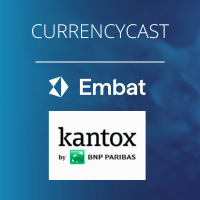 https://treasuryxl.com/wp-content/uploads/2025/04/KantoxBLOGS-featured-8.png
200
200
treasuryXL
https://treasuryxl.com/wp-content/uploads/2018/07/treasuryXL-logo-300x56.png
treasuryXL2025-04-02 07:00:242025-04-01 12:59:46CurrencyCast: Cash is King: The FX Risk Perspective
https://treasuryxl.com/wp-content/uploads/2025/04/KantoxBLOGS-featured-8.png
200
200
treasuryXL
https://treasuryxl.com/wp-content/uploads/2018/07/treasuryXL-logo-300x56.png
treasuryXL2025-04-02 07:00:242025-04-01 12:59:46CurrencyCast: Cash is King: The FX Risk Perspective https://treasuryxl.com/wp-content/uploads/2024/10/Carlo-_BLOGS-Expert-featured-2.png
200
200
treasuryXL
https://treasuryxl.com/wp-content/uploads/2018/07/treasuryXL-logo-300x56.png
treasuryXL2025-04-01 07:00:252025-03-31 15:33:46ECB Distributed Settlement Technology system for central bank money: from Exploration to Expansion
https://treasuryxl.com/wp-content/uploads/2024/10/Carlo-_BLOGS-Expert-featured-2.png
200
200
treasuryXL
https://treasuryxl.com/wp-content/uploads/2018/07/treasuryXL-logo-300x56.png
treasuryXL2025-04-01 07:00:252025-03-31 15:33:46ECB Distributed Settlement Technology system for central bank money: from Exploration to Expansion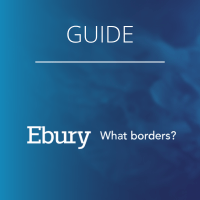 https://treasuryxl.com/wp-content/uploads/2025/02/Ebury-BLOGS-featured-5.png
200
200
treasuryXL
https://treasuryxl.com/wp-content/uploads/2018/07/treasuryXL-logo-300x56.png
treasuryXL2025-03-31 07:00:132025-03-27 11:11:22A comprehensive guide to different hedging programs
https://treasuryxl.com/wp-content/uploads/2025/02/Ebury-BLOGS-featured-5.png
200
200
treasuryXL
https://treasuryxl.com/wp-content/uploads/2018/07/treasuryXL-logo-300x56.png
treasuryXL2025-03-31 07:00:132025-03-27 11:11:22A comprehensive guide to different hedging programs https://treasuryxl.com/wp-content/uploads/2025/01/Nomentia-BLOGS-featured-1.png
200
200
treasuryXL
https://treasuryxl.com/wp-content/uploads/2018/07/treasuryXL-logo-300x56.png
treasuryXL2025-03-26 07:00:562025-03-25 21:48:49Why Excel fails at cash flow forecasting?
https://treasuryxl.com/wp-content/uploads/2025/01/Nomentia-BLOGS-featured-1.png
200
200
treasuryXL
https://treasuryxl.com/wp-content/uploads/2018/07/treasuryXL-logo-300x56.png
treasuryXL2025-03-26 07:00:562025-03-25 21:48:49Why Excel fails at cash flow forecasting? https://treasuryxl.com/wp-content/uploads/2025/03/Live-Session-AB-1-1.png
200
200
treasuryXL
https://treasuryxl.com/wp-content/uploads/2018/07/treasuryXL-logo-300x56.png
treasuryXL2025-03-20 07:00:532025-03-31 16:39:22Recap & Recording: Self-Service Treasury: Excel, APIs, AI, and Other Practical Tools
https://treasuryxl.com/wp-content/uploads/2025/03/Live-Session-AB-1-1.png
200
200
treasuryXL
https://treasuryxl.com/wp-content/uploads/2018/07/treasuryXL-logo-300x56.png
treasuryXL2025-03-20 07:00:532025-03-31 16:39:22Recap & Recording: Self-Service Treasury: Excel, APIs, AI, and Other Practical Tools https://treasuryxl.com/wp-content/uploads/2025/03/Embat-BLOGS-featured-4.png
200
200
treasuryXL
https://treasuryxl.com/wp-content/uploads/2018/07/treasuryXL-logo-300x56.png
treasuryXL2025-03-19 08:00:102025-04-24 17:19:05Building a Smarter Treasury: The Embat Story
https://treasuryxl.com/wp-content/uploads/2025/03/Embat-BLOGS-featured-4.png
200
200
treasuryXL
https://treasuryxl.com/wp-content/uploads/2018/07/treasuryXL-logo-300x56.png
treasuryXL2025-03-19 08:00:102025-04-24 17:19:05Building a Smarter Treasury: The Embat Story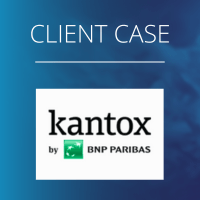 https://treasuryxl.com/wp-content/uploads/2025/03/KantoxBLOGS-featured-5.png
200
200
treasuryXL
https://treasuryxl.com/wp-content/uploads/2018/07/treasuryXL-logo-300x56.png
treasuryXL2025-03-17 07:00:402025-03-14 00:44:05How Profine achieved real-time FX risk management with Kantox
https://treasuryxl.com/wp-content/uploads/2025/03/KantoxBLOGS-featured-5.png
200
200
treasuryXL
https://treasuryxl.com/wp-content/uploads/2018/07/treasuryXL-logo-300x56.png
treasuryXL2025-03-17 07:00:402025-03-14 00:44:05How Profine achieved real-time FX risk management with Kantox https://treasuryxl.com/wp-content/uploads/2024/02/Francois-Template_BLOGS-Expert-featured-5.png
200
200
treasuryXL
https://treasuryxl.com/wp-content/uploads/2018/07/treasuryXL-logo-300x56.png
treasuryXL2025-03-13 09:15:452025-03-13 11:02:14New E-payment Methods & Emerging Trends in Treasury Innovation and Fintech Solutions
https://treasuryxl.com/wp-content/uploads/2024/02/Francois-Template_BLOGS-Expert-featured-5.png
200
200
treasuryXL
https://treasuryxl.com/wp-content/uploads/2018/07/treasuryXL-logo-300x56.png
treasuryXL2025-03-13 09:15:452025-03-13 11:02:14New E-payment Methods & Emerging Trends in Treasury Innovation and Fintech Solutions https://treasuryxl.com/wp-content/uploads/2025/01/Ebury-BLOGS-featured-4.png
200
200
treasuryXL
https://treasuryxl.com/wp-content/uploads/2018/07/treasuryXL-logo-300x56.png
treasuryXL2025-03-11 07:00:252025-03-10 15:14:51Debunking the top 5 misconceptions about currency hedging
https://treasuryxl.com/wp-content/uploads/2025/01/Ebury-BLOGS-featured-4.png
200
200
treasuryXL
https://treasuryxl.com/wp-content/uploads/2018/07/treasuryXL-logo-300x56.png
treasuryXL2025-03-11 07:00:252025-03-10 15:14:51Debunking the top 5 misconceptions about currency hedging https://treasuryxl.com/wp-content/uploads/2024/03/GTreasury-BLOGS-featured.png
200
200
treasuryXL
https://treasuryxl.com/wp-content/uploads/2018/07/treasuryXL-logo-300x56.png
treasuryXL2025-03-06 07:00:432025-03-05 16:33:49Strong Dollar vs. Weak Dollar: What Treasurers Need to Know
https://treasuryxl.com/wp-content/uploads/2024/03/GTreasury-BLOGS-featured.png
200
200
treasuryXL
https://treasuryxl.com/wp-content/uploads/2018/07/treasuryXL-logo-300x56.png
treasuryXL2025-03-06 07:00:432025-03-05 16:33:49Strong Dollar vs. Weak Dollar: What Treasurers Need to Know https://treasuryxl.com/wp-content/uploads/2024/10/Carlo-_BLOGS-Expert-featured-2.png
200
200
treasuryXL
https://treasuryxl.com/wp-content/uploads/2018/07/treasuryXL-logo-300x56.png
treasuryXL2025-03-05 07:00:202025-02-28 11:27:56The rise of AI-driven cryptocurrencies: towards a smarter crypto market
https://treasuryxl.com/wp-content/uploads/2024/10/Carlo-_BLOGS-Expert-featured-2.png
200
200
treasuryXL
https://treasuryxl.com/wp-content/uploads/2018/07/treasuryXL-logo-300x56.png
treasuryXL2025-03-05 07:00:202025-02-28 11:27:56The rise of AI-driven cryptocurrencies: towards a smarter crypto market https://treasuryxl.com/wp-content/uploads/2024/10/Embat-BLOGS-featured-2.png
200
200
treasuryXL
https://treasuryxl.com/wp-content/uploads/2018/07/treasuryXL-logo-300x56.png
treasuryXL2025-03-03 07:00:042025-02-28 10:49:11How automated banking reconciliation can improve financial decision making
https://treasuryxl.com/wp-content/uploads/2024/10/Embat-BLOGS-featured-2.png
200
200
treasuryXL
https://treasuryxl.com/wp-content/uploads/2018/07/treasuryXL-logo-300x56.png
treasuryXL2025-03-03 07:00:042025-02-28 10:49:11How automated banking reconciliation can improve financial decision making https://treasuryxl.com/wp-content/uploads/2025/02/Ebury-BLOGS-featured-5.png
200
200
treasuryXL
https://treasuryxl.com/wp-content/uploads/2018/07/treasuryXL-logo-300x56.png
treasuryXL2025-02-22 07:00:422025-02-21 09:35:11Everything you need to know to set a budget rate in 2025
https://treasuryxl.com/wp-content/uploads/2025/02/Ebury-BLOGS-featured-5.png
200
200
treasuryXL
https://treasuryxl.com/wp-content/uploads/2018/07/treasuryXL-logo-300x56.png
treasuryXL2025-02-22 07:00:422025-02-21 09:35:11Everything you need to know to set a budget rate in 2025 https://treasuryxl.com/wp-content/uploads/2024/02/Francois-Template_BLOGS-Expert-featured-5.png
200
200
treasuryXL
https://treasuryxl.com/wp-content/uploads/2018/07/treasuryXL-logo-300x56.png
treasuryXL2025-02-19 07:00:592025-02-19 09:03:33Training: PSD2 & 3 and the PSR: impact on open banking and the financial ecosystem
https://treasuryxl.com/wp-content/uploads/2024/02/Francois-Template_BLOGS-Expert-featured-5.png
200
200
treasuryXL
https://treasuryxl.com/wp-content/uploads/2018/07/treasuryXL-logo-300x56.png
treasuryXL2025-02-19 07:00:592025-02-19 09:03:33Training: PSD2 & 3 and the PSR: impact on open banking and the financial ecosystem https://treasuryxl.com/wp-content/uploads/2024/05/Template_Events-featured_EUROFINANCE.png
200
200
treasuryXL
https://treasuryxl.com/wp-content/uploads/2018/07/treasuryXL-logo-300x56.png
treasuryXL2025-02-17 09:00:522025-02-14 10:50:4712th Annual Treasury & Cash Management in Africa & the Middle East
https://treasuryxl.com/wp-content/uploads/2024/05/Template_Events-featured_EUROFINANCE.png
200
200
treasuryXL
https://treasuryxl.com/wp-content/uploads/2018/07/treasuryXL-logo-300x56.png
treasuryXL2025-02-17 09:00:522025-02-14 10:50:4712th Annual Treasury & Cash Management in Africa & the Middle East https://treasuryxl.com/wp-content/uploads/2025/02/KantoxBLOGS-featured-3.png
200
200
treasuryXL
https://treasuryxl.com/wp-content/uploads/2018/07/treasuryXL-logo-300x56.png
treasuryXL2025-02-17 07:00:562025-03-10 15:33:05Protecting Profit Margins from Currency Fluctuations
https://treasuryxl.com/wp-content/uploads/2025/02/KantoxBLOGS-featured-3.png
200
200
treasuryXL
https://treasuryxl.com/wp-content/uploads/2018/07/treasuryXL-logo-300x56.png
treasuryXL2025-02-17 07:00:562025-03-10 15:33:05Protecting Profit Margins from Currency Fluctuations https://treasuryxl.com/wp-content/uploads/2025/02/LIVE-SESSION-1.png
200
200
treasuryXL
https://treasuryxl.com/wp-content/uploads/2018/07/treasuryXL-logo-300x56.png
treasuryXL2025-02-14 10:00:102025-02-13 16:25:36Recap & Recording: How to Boost Your Revenue and Protect Margins with Treasury Solutions
https://treasuryxl.com/wp-content/uploads/2025/02/LIVE-SESSION-1.png
200
200
treasuryXL
https://treasuryxl.com/wp-content/uploads/2018/07/treasuryXL-logo-300x56.png
treasuryXL2025-02-14 10:00:102025-02-13 16:25:36Recap & Recording: How to Boost Your Revenue and Protect Margins with Treasury Solutions https://treasuryxl.com/wp-content/uploads/2024/03/GTreasury-BLOGS-featured.png
200
200
treasuryXL
https://treasuryxl.com/wp-content/uploads/2018/07/treasuryXL-logo-300x56.png
treasuryXL2025-02-13 07:00:442025-02-10 14:32:10Tariffs, FX Volatility, and Treasury Uncertainty: 3 Ways to Navigate this New Normal
https://treasuryxl.com/wp-content/uploads/2024/03/GTreasury-BLOGS-featured.png
200
200
treasuryXL
https://treasuryxl.com/wp-content/uploads/2018/07/treasuryXL-logo-300x56.png
treasuryXL2025-02-13 07:00:442025-02-10 14:32:10Tariffs, FX Volatility, and Treasury Uncertainty: 3 Ways to Navigate this New Normal https://treasuryxl.com/wp-content/uploads/2024/10/Carlo-_BLOGS-Expert-featured-2.png
200
200
treasuryXL
https://treasuryxl.com/wp-content/uploads/2018/07/treasuryXL-logo-300x56.png
treasuryXL2025-01-30 07:00:172025-01-29 23:23:17Blockchain and Crypto Trends 2025: Further Integration with Traditional Finance
https://treasuryxl.com/wp-content/uploads/2024/10/Carlo-_BLOGS-Expert-featured-2.png
200
200
treasuryXL
https://treasuryxl.com/wp-content/uploads/2018/07/treasuryXL-logo-300x56.png
treasuryXL2025-01-30 07:00:172025-01-29 23:23:17Blockchain and Crypto Trends 2025: Further Integration with Traditional Finance https://treasuryxl.com/wp-content/uploads/2025/01/Ebury-BLOGS-featured-4.png
200
200
treasuryXL
https://treasuryxl.com/wp-content/uploads/2018/07/treasuryXL-logo-300x56.png
treasuryXL2025-01-28 07:00:562025-03-10 15:14:19Money at rest, money in motion & money at risk
https://treasuryxl.com/wp-content/uploads/2025/01/Ebury-BLOGS-featured-4.png
200
200
treasuryXL
https://treasuryxl.com/wp-content/uploads/2018/07/treasuryXL-logo-300x56.png
treasuryXL2025-01-28 07:00:562025-03-10 15:14:19Money at rest, money in motion & money at risk https://treasuryxl.com/wp-content/uploads/2025/01/Francois-Template_BLOGS-Expert-featured-4.png
200
200
treasuryXL
https://treasuryxl.com/wp-content/uploads/2018/07/treasuryXL-logo-300x56.png
treasuryXL2025-01-23 07:00:062025-01-23 17:05:16Instant Payments Regulation and DORA entering into force
https://treasuryxl.com/wp-content/uploads/2025/01/Francois-Template_BLOGS-Expert-featured-4.png
200
200
treasuryXL
https://treasuryxl.com/wp-content/uploads/2018/07/treasuryXL-logo-300x56.png
treasuryXL2025-01-23 07:00:062025-01-23 17:05:16Instant Payments Regulation and DORA entering into force https://treasuryxl.com/wp-content/uploads/2024/12/Marianna-Template_BLOGS-Expert-featured.png
200
200
treasuryXL
https://treasuryxl.com/wp-content/uploads/2018/07/treasuryXL-logo-300x56.png
treasuryXL2025-01-21 07:00:142025-01-20 13:22:4012 Myths of Treasury | Part 2
https://treasuryxl.com/wp-content/uploads/2024/12/Marianna-Template_BLOGS-Expert-featured.png
200
200
treasuryXL
https://treasuryxl.com/wp-content/uploads/2018/07/treasuryXL-logo-300x56.png
treasuryXL2025-01-21 07:00:142025-01-20 13:22:4012 Myths of Treasury | Part 2 https://treasuryxl.com/wp-content/uploads/2025/01/GPS-featured-1.png
200
200
treasuryXL
https://treasuryxl.com/wp-content/uploads/2018/07/treasuryXL-logo-300x56.png
treasuryXL2025-01-20 07:00:162025-01-15 15:21:11Press Release | Corpay, a global S&P 500 corporate payments company, completed the acquisition of GPS Capital Markets
https://treasuryxl.com/wp-content/uploads/2025/01/GPS-featured-1.png
200
200
treasuryXL
https://treasuryxl.com/wp-content/uploads/2018/07/treasuryXL-logo-300x56.png
treasuryXL2025-01-20 07:00:162025-01-15 15:21:11Press Release | Corpay, a global S&P 500 corporate payments company, completed the acquisition of GPS Capital Markets https://treasuryxl.com/wp-content/uploads/2025/01/Nomentia-BLOGS-featured-1.png
200
200
treasuryXL
https://treasuryxl.com/wp-content/uploads/2018/07/treasuryXL-logo-300x56.png
treasuryXL2025-01-15 07:00:332025-01-16 14:27:216 Treasury Management Trends for 2025
https://treasuryxl.com/wp-content/uploads/2025/01/Nomentia-BLOGS-featured-1.png
200
200
treasuryXL
https://treasuryxl.com/wp-content/uploads/2018/07/treasuryXL-logo-300x56.png
treasuryXL2025-01-15 07:00:332025-01-16 14:27:216 Treasury Management Trends for 2025 https://treasuryxl.com/wp-content/uploads/2025/01/Ebury-BLOGS-featured-3.png
200
200
treasuryXL
https://treasuryxl.com/wp-content/uploads/2018/07/treasuryXL-logo-300x56.png
treasuryXL2025-01-13 07:00:552025-01-13 10:19:04The biggest unknown quantity around Trump is tariffs, says Matthew Ryan
https://treasuryxl.com/wp-content/uploads/2025/01/Ebury-BLOGS-featured-3.png
200
200
treasuryXL
https://treasuryxl.com/wp-content/uploads/2018/07/treasuryXL-logo-300x56.png
treasuryXL2025-01-13 07:00:552025-01-13 10:19:04The biggest unknown quantity around Trump is tariffs, says Matthew Ryan https://treasuryxl.com/wp-content/uploads/2024/12/FIS-BLOGS-featured-4.png
200
200
treasuryXL
https://treasuryxl.com/wp-content/uploads/2018/07/treasuryXL-logo-300x56.png
treasuryXL2025-01-08 07:00:412025-01-07 10:39:33Unlocking Value: How TMS Delivers Measurable ROI for Corporate Treasury
https://treasuryxl.com/wp-content/uploads/2024/12/FIS-BLOGS-featured-4.png
200
200
treasuryXL
https://treasuryxl.com/wp-content/uploads/2018/07/treasuryXL-logo-300x56.png
treasuryXL2025-01-08 07:00:412025-01-07 10:39:33Unlocking Value: How TMS Delivers Measurable ROI for Corporate Treasury https://treasuryxl.com/wp-content/uploads/2024/01/Harry_BLOGS-Expert-featured.png
200
200
treasuryXL
https://treasuryxl.com/wp-content/uploads/2018/07/treasuryXL-logo-300x56.png
treasuryXL2024-12-23 07:00:592024-12-20 08:19:13What is an FX Budget Rate?
https://treasuryxl.com/wp-content/uploads/2024/01/Harry_BLOGS-Expert-featured.png
200
200
treasuryXL
https://treasuryxl.com/wp-content/uploads/2018/07/treasuryXL-logo-300x56.png
treasuryXL2024-12-23 07:00:592024-12-20 08:19:13What is an FX Budget Rate? https://treasuryxl.com/wp-content/uploads/2024/12/Francois-Template_BLOGS-Expert-featured-3.png
200
200
treasuryXL
https://treasuryxl.com/wp-content/uploads/2018/07/treasuryXL-logo-300x56.png
treasuryXL2024-12-17 10:00:152024-12-16 10:41:10Update Digital Finance Summit 2024
https://treasuryxl.com/wp-content/uploads/2024/12/Francois-Template_BLOGS-Expert-featured-3.png
200
200
treasuryXL
https://treasuryxl.com/wp-content/uploads/2018/07/treasuryXL-logo-300x56.png
treasuryXL2024-12-17 10:00:152024-12-16 10:41:10Update Digital Finance Summit 2024 https://treasuryxl.com/wp-content/uploads/2024/09/Template_Events-featured_EUROFINANCE-2.png
200
200
treasuryXL
https://treasuryxl.com/wp-content/uploads/2018/07/treasuryXL-logo-300x56.png
treasuryXL2024-12-12 10:00:362024-12-09 09:28:03AI’s quantum leap in treasury: automating tasks and redefining financial strategy
https://treasuryxl.com/wp-content/uploads/2024/09/Template_Events-featured_EUROFINANCE-2.png
200
200
treasuryXL
https://treasuryxl.com/wp-content/uploads/2018/07/treasuryXL-logo-300x56.png
treasuryXL2024-12-12 10:00:362024-12-09 09:28:03AI’s quantum leap in treasury: automating tasks and redefining financial strategy https://treasuryxl.com/wp-content/uploads/2024/03/GTreasury-BLOGS-featured.png
200
200
treasuryXL
https://treasuryxl.com/wp-content/uploads/2018/07/treasuryXL-logo-300x56.png
treasuryXL2024-11-25 07:00:542024-11-19 17:23:30How to Leverage Automation in your FX Exposure Management Strategy
https://treasuryxl.com/wp-content/uploads/2024/03/GTreasury-BLOGS-featured.png
200
200
treasuryXL
https://treasuryxl.com/wp-content/uploads/2018/07/treasuryXL-logo-300x56.png
treasuryXL2024-11-25 07:00:542024-11-19 17:23:30How to Leverage Automation in your FX Exposure Management Strategy https://treasuryxl.com/wp-content/uploads/2024/01/Harry_BLOGS-Expert-featured.png
200
200
treasuryXL
https://treasuryxl.com/wp-content/uploads/2018/07/treasuryXL-logo-300x56.png
treasuryXL2024-11-19 07:00:072024-11-18 09:12:56Forward + Spot Strategy: Pros and Cons
https://treasuryxl.com/wp-content/uploads/2024/01/Harry_BLOGS-Expert-featured.png
200
200
treasuryXL
https://treasuryxl.com/wp-content/uploads/2018/07/treasuryXL-logo-300x56.png
treasuryXL2024-11-19 07:00:072024-11-18 09:12:56Forward + Spot Strategy: Pros and Cons https://treasuryxl.com/wp-content/uploads/2024/05/NEWS-featured_TD.png
200
200
treasuryXL
https://treasuryxl.com/wp-content/uploads/2018/07/treasuryXL-logo-300x56.png
treasuryXL2024-11-12 09:00:372024-11-11 12:36:23Fintech | Treasury Consultancy Collaboration | Treasury Delta & Tetraktys Treasury
https://treasuryxl.com/wp-content/uploads/2024/05/NEWS-featured_TD.png
200
200
treasuryXL
https://treasuryxl.com/wp-content/uploads/2018/07/treasuryXL-logo-300x56.png
treasuryXL2024-11-12 09:00:372024-11-11 12:36:23Fintech | Treasury Consultancy Collaboration | Treasury Delta & Tetraktys Treasury https://treasuryxl.com/wp-content/uploads/2024/10/Carlo-_BLOGS-Expert-featured-2.png
200
200
treasuryXL
https://treasuryxl.com/wp-content/uploads/2018/07/treasuryXL-logo-300x56.png
treasuryXL2024-10-24 07:00:512024-10-24 08:20:58Traditional financial custodians enter the crypto market
https://treasuryxl.com/wp-content/uploads/2024/10/Carlo-_BLOGS-Expert-featured-2.png
200
200
treasuryXL
https://treasuryxl.com/wp-content/uploads/2018/07/treasuryXL-logo-300x56.png
treasuryXL2024-10-24 07:00:512024-10-24 08:20:58Traditional financial custodians enter the crypto market https://treasuryxl.com/wp-content/uploads/2024/10/FIS-BLOGS-featured-2.png
200
200
treasuryXL
https://treasuryxl.com/wp-content/uploads/2018/07/treasuryXL-logo-300x56.png
treasuryXL2024-10-17 07:00:562024-10-17 09:52:295 Reasons to Automate your Treasury Processes
https://treasuryxl.com/wp-content/uploads/2024/10/FIS-BLOGS-featured-2.png
200
200
treasuryXL
https://treasuryxl.com/wp-content/uploads/2018/07/treasuryXL-logo-300x56.png
treasuryXL2024-10-17 07:00:562024-10-17 09:52:295 Reasons to Automate your Treasury Processes https://treasuryxl.com/wp-content/uploads/2024/09/Fintech-Connect-van-Template_EVENTS-featured_CTE.png
200
200
treasuryXL
https://treasuryxl.com/wp-content/uploads/2018/07/treasuryXL-logo-300x56.png
treasuryXL2024-10-10 07:00:462024-10-10 09:00:14FinTech Connect 2024
https://treasuryxl.com/wp-content/uploads/2024/09/Fintech-Connect-van-Template_EVENTS-featured_CTE.png
200
200
treasuryXL
https://treasuryxl.com/wp-content/uploads/2018/07/treasuryXL-logo-300x56.png
treasuryXL2024-10-10 07:00:462024-10-10 09:00:14FinTech Connect 2024 https://treasuryxl.com/wp-content/uploads/2024/01/Carlo-_BLOGS-Expert-featured.png
200
200
treasuryXL
https://treasuryxl.com/wp-content/uploads/2018/07/treasuryXL-logo-300x56.png
treasuryXL2024-10-09 07:00:042024-10-01 15:31:152024: a transformative and innovative year for DeFi
https://treasuryxl.com/wp-content/uploads/2024/01/Carlo-_BLOGS-Expert-featured.png
200
200
treasuryXL
https://treasuryxl.com/wp-content/uploads/2018/07/treasuryXL-logo-300x56.png
treasuryXL2024-10-09 07:00:042024-10-01 15:31:152024: a transformative and innovative year for DeFiNew: XLMatchMaker
Disclaimer: This chatbot is in beta; occasional errors might occur. It doesn’t give financial advice, but it will do its best to connect you with the right treasuryXL expert or partner.
Not displaying right? Click here to open treasuryXL MatchMaker in a full page.
Newsletter & eBook
Subscribe to our free weekly newsletter and receive your 41 pages ‘easy-to-read’ eBook, What is Treasury?
Great news! treasuryXL’s live session recordings are now available on Spotify

Go to
Partner Program
Join treasuryXL as a partner!
At treasuryXL, we help your company connect with treasury professionals and showcase your solutions and expertise through our partner network. Stand out in 2026 and schedule a meeting with us today.
Get in touch and discover the best partnership option for you.
Contact us
treasuryXL
Kaldenkerkerweg 22
5913 AE Venlo
The Netherlands
Email: [email protected]
Telephone & WhatsApp: +31 6 2732 8942
Subscribe
Newsletter & eBook
Subscribe to our free weekly newsletter and receive your 41 pages ‘easy-to-read’ eBook, What is Treasury?


